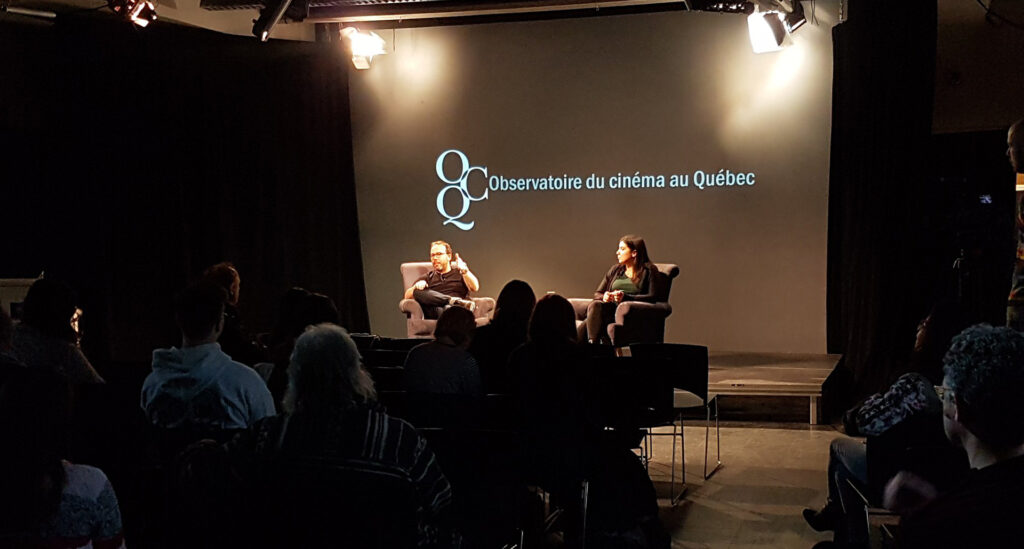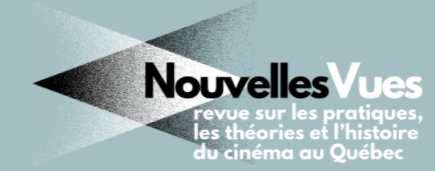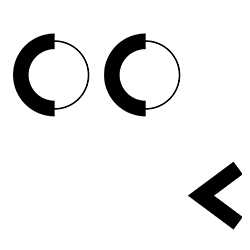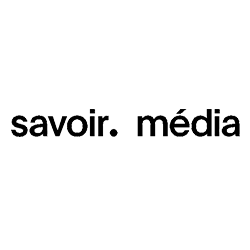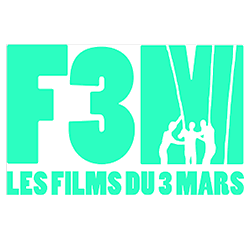
Affiliated with the Université de Montréal's Département d'histoire de l'art, de cinéma et des médias audiovisuels, the Observatoire du cinéma au Québec encourages dialogue between the worlds of film practice and film study, and promotes interaction between the two. The Observatoire organizes activities for students, enabling them to enjoy experiences that go beyond the usual academic curriculum: screenings, lectures, ciné-club, debates, talks, colloquia, film lessons, the television series Au cœur du cinéma québécois and the development of collaborations with a number of Quebec festivals.
This unique academic crossroads aims to encourage exchanges and partnerships between those involved in the practice of cinema in Quebec and those dedicated to the study of cinema, while fostering the future of the next generation. Like the series Au cœur du cinéma québécois (presented on Savoir Média), hosted by Denis Héroux (seasons 1 to 4) and Isabelle Raynauld (seasons 5 to 11), the Observatoire aims to open up a space for dialogue between artisans and the next generation of filmmakers. Founded in 2007 by André Gaudreault and Denis Héroux, the Observatoire du cinéma au Québec was officially launched in February 2010. The team now consists of André Gaudreault (director), Thomas Carrier-Lafleur (assistant director) and Joël Lehmann (consultant), as well as students working on coordination, recording and editing.
In a few words, the Observatory is :
- a bridge between Quebec's film industry and university film studies;
- a laboratory to reflect on the work of film production and distribution;
- an ideal environment for the study of cinema as an artistic expression of Quebec culture;
- a place dedicated to understanding the changes affecting cinema in the light of new technologies;
- a tool for deepening understanding of the role of cinema in our society;
- a meeting and exchange point for the various Quebec universities offering university programs in cinema.
Programmation
Actualités
What?
Who?
Search
Activities description
Newsletter
Donate
Would you like to make a donation to the OCQ?
The Observatoire du cinéma au Québec depends on the generosity of its donors. To support the OCQ, simply visit the 2024-2025 philanthropy campaign web site.
For more informations:
Elodie Marteau
Annual Campaign Manager
Contact
Phone number: 514 343‑7858
Email address: observatoirecinemaquebec@histart.umontreal.ca
Mailing address:
Observatoire du cinéma au Québec
Université de Montréal
Pavillon Lionel-Groulx, Département d’histoire de l’art et d’études cinématographiques
C. P. 6128, succursale Centre-ville
Montréal (Québec) H3C 3J7
CANADA
Civic address:
Observatoire du cinéma au Québec
3150, rue Jean-Brillant
Local C‑2110 (Pavillon Lionel-Groulx)
Université de Montréal
Département d’histoire de l’art et d’études cinématographiques
Université de Montréal

